1. Florida – “Sunshine” But Not for Public Records Fees

Florida is famous for its sunshine laws, promoting open government—but there’s a catch. Outsiders requesting public records often face higher fees or more obstacles than in-staters. While the law itself doesn’t openly discriminate, in practice, some agencies charge extra for non-Floridians or drag their feet on processing requests. This subtle barrier can make investigative reporting or legal research tough for anyone not living in the state.
If you’re from out of state, you might have to pay hundreds of dollars for records locals can access more easily. It’s not illegal, but it’s definitely unfriendly. Some journalists and attorneys have even cited this as a deterrent to watchdog work. The transparency is there—but only if you’re already local.
2. Texas – No Lawyer, No Problem (Unless You’re from Out of State)
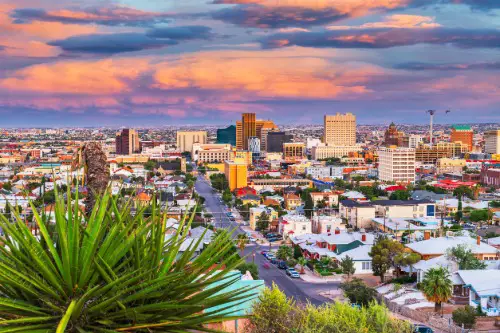
Texas allows non-lawyers to represent clients in some administrative hearings, according to Texas Law Help—but only if they live in Texas. That means a business owner from Oklahoma can’t have their own accountant speak on their behalf in a Texas tax dispute, even if that accountant is credentialed. The rule appears neutral on its face but disproportionately affects outsiders doing business in Texas.
This can be a huge hurdle for small businesses crossing state lines. Hiring a Texas-based attorney just to respond to a notice can be prohibitively expensive. It’s especially frustrating since Texas allows Texans to use non-attorneys locally. The line seems drawn to box out help from the outside.
3. Nevada – You Can Marry Here, But You Can’t Sue Easily
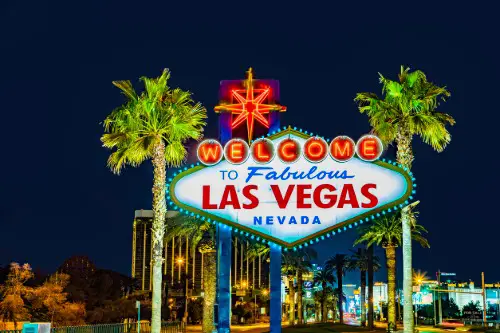
Nevada courts can be unusually strict about jurisdiction when out-of-staters sue Nevada residents or businesses. If you’re not from Nevada and file a lawsuit in their courts, you may find the rules more rigid, especially for consumer claims. This is partly due to how Nevada courts interpret personal jurisdiction.
In practice, this makes it tough for tourists or online customers from other states to hold Nevada companies accountable. Considering how many people visit Vegas or gamble online, that’s a big deal. Locals enjoy more flexibility navigating the courts. For outsiders, good luck getting past the courthouse doors.
4. Hawaii – Local Hire Preferences That Go Beyond the Norm

Hawaii has a history of prioritizing local workers, but certain laws go beyond mere preference. For example, state contracts often require that 80% of the workforce on public projects be local hires, according to the Department of Labor and Industrial Relations. While it’s framed as a way to boost the local economy, it significantly disadvantages mainland contractors trying to bid on these jobs.
For companies based outside Hawaii, this law is a big barrier. They have to recruit and train local workers or partner with in-state firms—both expensive moves. The law indirectly filters out out-of-state competitors. It’s one reason construction giants often pass on bidding in the Aloha State.
5. Alaska – Hunting Rights That Favor Long-Term Residents

In Alaska, subsistence hunting rights are reserved for “rural residents” under federal law, and state-level rules also lean heavily in favor of locals, according to Eric Stone of Alaska Public Media. The definition of “rural” often excludes transient workers and recent arrivals. This means non-natives or recent transplants may be blocked from legally hunting moose or caribou for food.
To qualify, you often have to prove both residency and cultural ties to the land. For someone new to Alaska—even if they’ve moved permanently—it can take years to gain access. The rules are aimed at protecting Indigenous and rural communities but can alienate other outsiders. It’s a fine balance between tradition and equal access.
6. Vermont – Land Use Law Disfavors Non-Residents in Practice
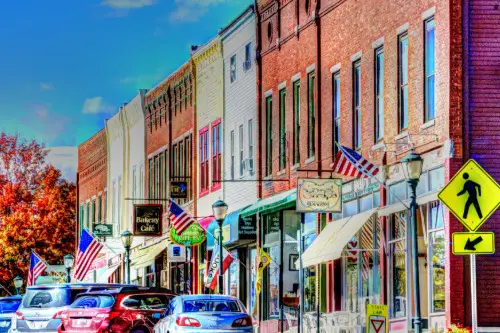
Vermont’s Act 250 is a strict land-use law meant to preserve the state’s rural charm. But it’s been criticized for favoring long-time residents and stymying outsiders trying to build homes or businesses. Locals often have the inside track on how to navigate permitting boards and zoning hearings.
If you’re new to Vermont, just buying land doesn’t mean you’ll get to build on it easily. Public hearings can drag for months, and vocal locals sometimes object to development by “flatlanders.” While the law doesn’t mention residency, the de facto gatekeeping can be intense. Outsiders often get discouraged and abandon their plans.
7. Arizona – Water Rights that Prioritize Longtime Users
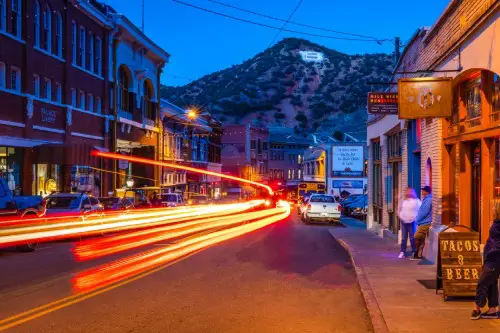
Arizona operates on a “first in time, first in right” water law system, and that has big consequences for newcomers, according to Brett Walton of Circle of Blue. Those who haven’t secured longstanding water rights may struggle to access water, especially in rural areas. If you’re an out-of-state buyer trying to start a farm or ranch, good luck securing enough to irrigate.
Meanwhile, long-established locals enjoy seniority, even if they use water inefficiently. There’s no law outright banning outsiders, but the structure of the system leaves them with the scraps. In a state where every drop counts, this creates a major barrier to entry. Newcomers often find themselves buying land they can’t fully use.
8. Wyoming – No Corporate Farming Unless You’re Local
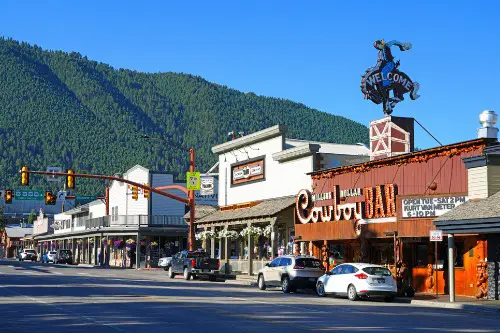
Wyoming restricts corporate farming by requiring that farms be family-owned unless they’re very small or meet tight conditions. In practice, this freezes out large out-of-state agribusinesses. While it’s meant to preserve the local ranching culture, it also limits outside investment and innovation.
The law doesn’t outright say “no outsiders,” but that’s often the result. Out-of-state companies face legal and financial barriers to entering Wyoming’s agriculture sector. For locals, it means less competition—but for newcomers, it’s a red tape wall. It’s the Wild West, but only if your name’s in the county ledger.
9. Maine – Lobstering Licenses Locked to Locals
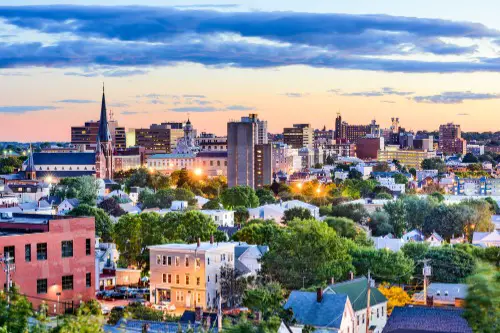
Maine’s lobstering license system is notoriously hard for outsiders to crack. Licenses are limited, and new entrants often wait years—decades even—on a list that favors family legacy and residency. This essentially makes the industry a closed loop.
Locals who grew up lobstering with their families get first dibs. For someone from Massachusetts or New York dreaming of a fresh start on the coast, the barriers are sky-high. Even if you move to Maine, it might take 10–15 years to get your own license. It’s an economic moat disguised as environmental regulation.
10. North Dakota – Tough Rules on Out-of-State Land Ownership
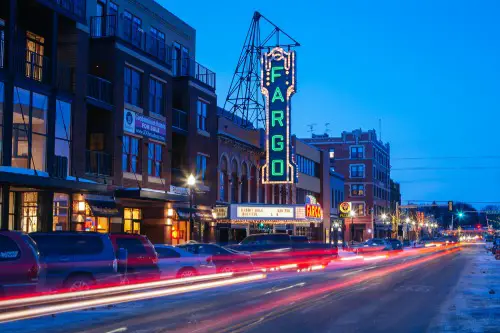
North Dakota strictly limits how much land out-of-state individuals or corporations can buy, especially farmland. Under the state’s anti-corporate farming law, you generally have to be a resident family farmer to own agricultural land. The rules are enforced aggressively, especially when non-resident buyers are involved.
This law is rooted in protecting family farms, but it creates major hurdles for out-of-state investors. Even foreign ownership faces strong legal resistance. For locals, it’s about tradition—but for newcomers, it’s a giant “keep out” sign. The message is clear: this land is our land, not yours.
11. California – Lawsuits and Laws Favoring In-State Plaintiffs

California courts have special jurisdictional rules that give in-state plaintiffs extra advantages, especially in consumer and environmental lawsuits. But when outsiders try to sue in California, particularly against local companies, the rules can flip. Courts often find reasons to dismiss out-of-state plaintiffs.
It sounds technical, but in practice, it creates a two-tier system. Local consumers are protected by the state’s robust laws; outsiders often aren’t. Especially in class-action suits, judges scrutinize non-resident claims much more harshly. It’s a quiet, procedural way to protect the home team.
12. Michigan – Higher Insurance Costs for Non-Residents
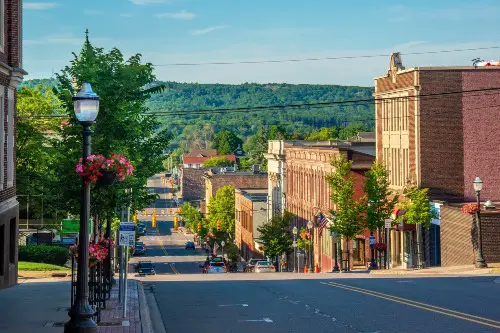
In Detroit and surrounding areas, auto insurance is expensive—and even worse for out-of-staters. Michigan’s unique no-fault insurance system used to require unlimited personal injury protection (PIP), which was notoriously pricey. While reforms in 2020 helped, insurers can still charge more if you’re not a full-time resident.
People moving to Michigan temporarily for work or school often face steep premiums. Even drivers from nearby Ohio or Indiana have reported being penalized if they’re not considered permanent residents. The law doesn’t say “charge outsiders more,” but the rating factors used by insurers lead to that outcome. It’s a financial push to either commit—or avoid the state altogether.
13. South Dakota – Secrecy Laws Favoring Local Trusts
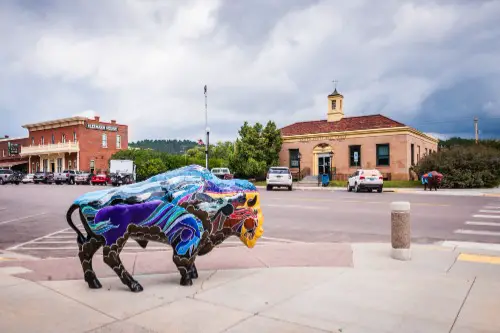
South Dakota is a global hub for wealthy individuals hiding assets in trusts—but not all trusts are treated equally. The state’s laws make it easier for in-state trust companies and residents to use legal loopholes than for outsiders. Outsiders trying to set up trusts there still often need a local trustee or agent.
The rules don’t outright block non-residents, but they make it cumbersome unless you have local connections. This gives South Dakota firms a massive advantage. It’s become a haven for the ultra-rich—if you know someone local. For others, the red tape keeps the door mostly closed.
14. Mississippi – Professional Licenses that Don’t Transfer Easily
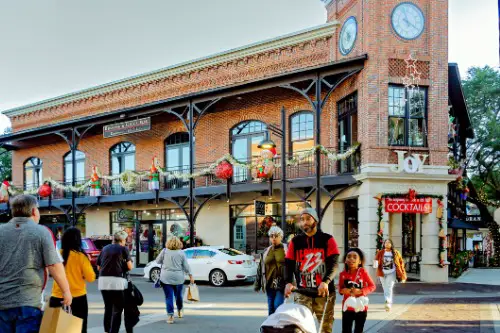
Mississippi has some of the least reciprocal professional licensing laws in the U.S. Teachers, nurses, and other licensed professionals often find they can’t easily transfer credentials. Outsiders have to jump through hoops to work there—even if they’re qualified elsewhere.
For example, a teacher from Georgia may have to take additional exams or coursework to get licensed. This slows down hiring and dissuades mobile professionals from relocating. While intended to maintain standards, the effect is a cold shoulder to outsiders. It’s a silent way of protecting local job markets.


